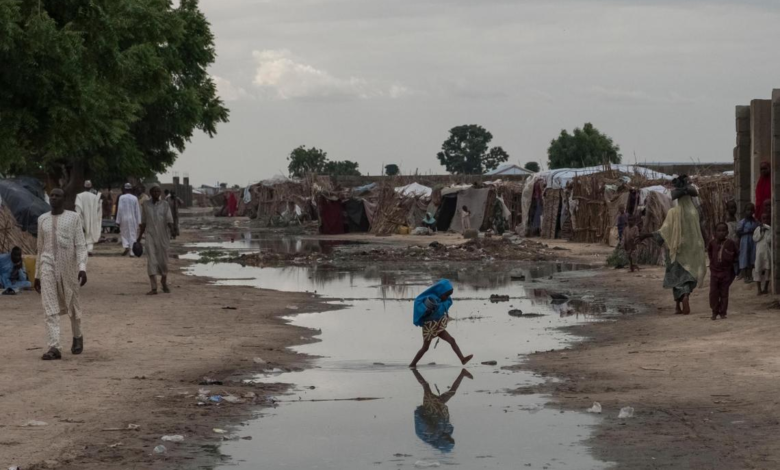Links Between Climate Crisis, Violence Against Children Should Be Addressed – Report
In June 2022, the United Nations verified over 67,000 grave violations against children in parts of West and Central Africa — the second-highest number since 2005.

Limits to the study of the impacts of climate change on children are inhibiting child protection efforts, argues Barnfonden, a member of the ChildFund Alliance.
According to a report published by the Swedish child rights organisation, “in the rapidly changing climate we are experiencing, we cannot afford to sit on the bench. We need to strengthen the discourse on linking climate change and environmental degradation risks and protecting children from violence, especially at local levels where children are impacted the most.”
“We see climate adaptation plans being made and invested in to strengthen communities. What we want to see are plans that work hand-in-hand to strengthen and invest in a coordinated way with child protection,” said Martina Hibell, Barnfonden’s Secretary General.
In Aug. 2021, the United Nations Children’s Fund (UNICEF) listed the Central African Republic, Chad, Nigeria, Guinea, and Somalia as the top five countries where children are at risk of the devastating impacts of climate change.
According to the UNICEF report, over a billion children – nearly half of the world’s children – live in countries at high risk from climate change impacts. In Central and West Africa particularly, these risks are exacerbating violence against children.
This year, the region has recorded a growing number of children affected by malnutrition and gender-based violence as well as those who have left school due to the climate crisis.
In June, the United Nations verified over 67,000 grave violations against children in the conflict-affected areas of West and Central Africa, accounting for the second-highest number of verified violations since 2005.
In Nigeria, for instance, over 12.8 million people living in the northeastern and northwestern regions are affected by armed violence, including 8.1 million children. These conflicts, often driven by disputes over land resources, have displaced thousands and led to the destruction of schools and health facilities.
Throughout the decade-long conflict, UNICEF disclosed that over 8,000 children had been recruited to become child soldiers and hold different roles in the armed group, which has adversely affected them. Apart from being recruited, children living in warring communities of Nigeria are generally more likely to experience various forms of violation like rape, sexual exploitation, and forced marriages.
In a study conducted by the United Nations Population Fund (UNFPA) in July, adolescent girls and women in two local government areas of Borno in Northeast Nigeria report concerns about the threat of sexual violence and abuse.
The survey revealed that “the context in which rape and sexual violence happen the most is 38 per cent at home; 24 per cent while going to the latrine; 14 per cent at school; 14 per cent when going to collect firewood” and 5 per cent when accessing other services.
However, beyond armed conflict, natural disasters such as flooding and drought have exposed children to malnutrition, diseases and other unfavourable conditions. In April, the World Health Organisation (WHO) revealed that the continent is witnessing increased climate-linked health emergencies.
The analysis also showed that over the last two decades, water-borne diseases were responsible for 40 per cent of climate-related health emergencies, while diarrhoea was the third leading cause of illness and death in children under five.
From May to July 2022, 31 states in Nigeria reported suspected cholera cases. In May alone, seven children died from the outbreak in Cross River, a state in the south-south region hit by the outbreak.
Flooding has also greatly contributed to the destruction of learning facilities. A report by The Cable notes how pupils of Lynwofri International Academy in Abuja, Nigeria’s capital city, do not go to school on rainy days after floods destroyed exercise books, textbooks, uniforms, desks, creche beds, and computers.
Whereas in drought-hit Niger, particularly Maradi and Zinder where people living in conflict-affected areas of Northwest Nigeria are fleeing to, it is estimated that 6.3 million children under the age of 5 will suffer from malnutrition, of which more than 1.4 million children will suffer from severe acute malnutrition, a 62 per cent jump from 2018.
“There is an urgent need to add this to the lexicon related to climate change and environmental degradation, while also adding ‘climate’ to discussions on child protection. This includes the need to promote an integrated development approach to ensure that work on climate and child protection is considered together in a more systematic way,” the Barnfonden report added.
“We need to go further than humanitarian response (where established guidelines exist) to strengthen multisectoral approaches in development interventions to protect children in a changing climate. In brief, we need to be more explicit.”
Support Our Journalism
There are millions of ordinary people affected by conflict in Africa whose stories are missing in the mainstream media. HumAngle is determined to tell those challenging and under-reported stories, hoping that the people impacted by these conflicts will find the safety and security they deserve.
To ensure that we continue to provide public service coverage, we have a small favour to ask you. We want you to be part of our journalistic endeavour by contributing a token to us.
Your donation will further promote a robust, free, and independent media.
Donate HereStay Closer To The Stories That Matter




